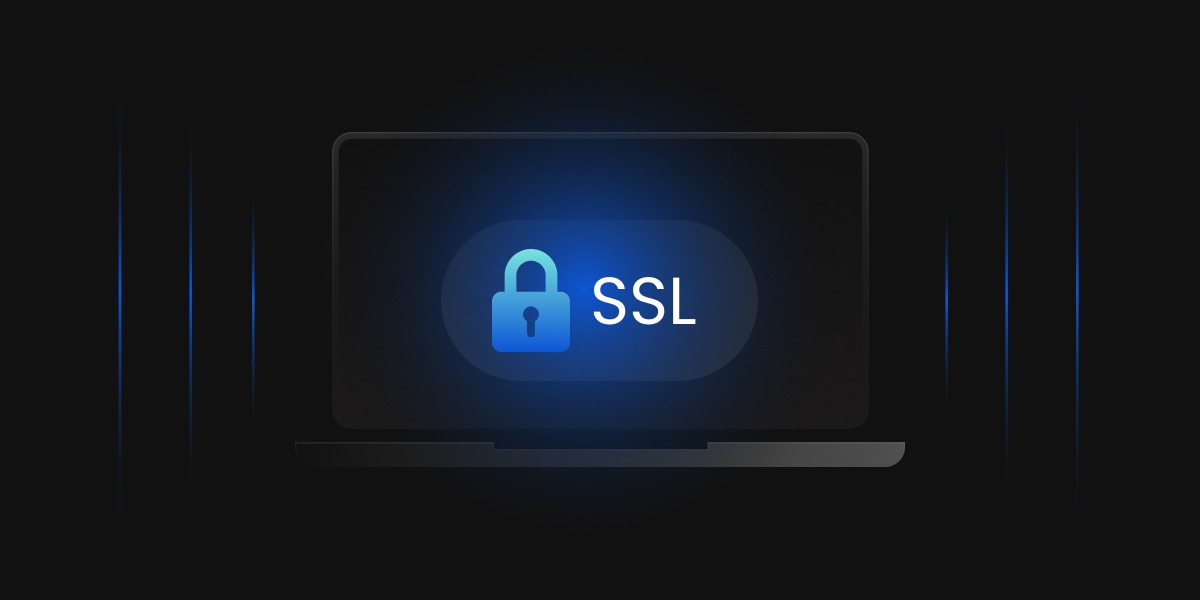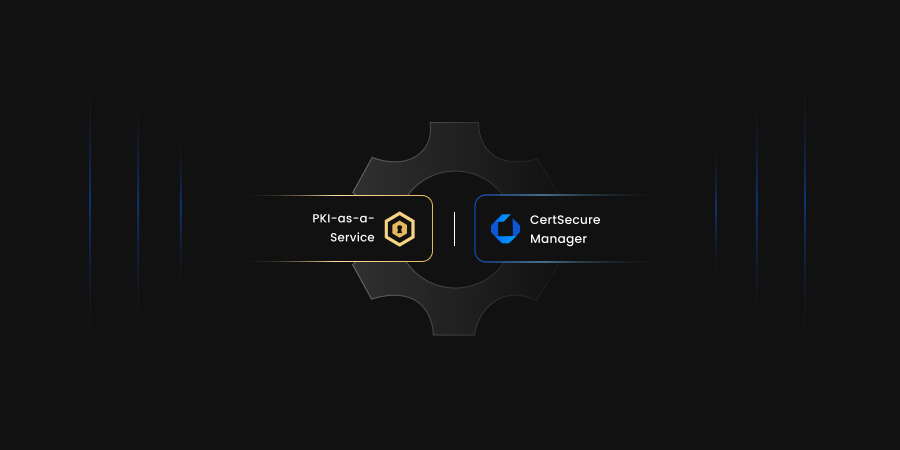- Understanding Google's 90-Day Proposal for TLS Certificates
- How Could Google's Proposed Change Impact Your Organization?
- Why has Automating Certificate Lifecycle Management become Essential?
- Google’s Broader Vision for the Web PKI Ecosystem
- The Risks of Manual Certificate Management
- Want to Know How We can Assist You?
- So, Are You Ready for 90-Day Certificates?
Organizations around the world rely on Transport Layer Security (TLS) certificates to secure their online communications, protect sensitive information, and establish trust with their users. The rising digital threats have catapulted the need for stricter security measures, which has resulted in the reduced lifespan of these certificates. Recently, Google has made a groundbreaking move by proposing a significant change (Moving Forward, Together) at the Certificate Authority/Browser (CA/B) Forum, seeking to reduce the maximum TLS certificate validity from 398 days to 90 days.
This proposal, while rooted in advancing security, brings new challenges for organizations reliant on manual certificate management. In this blog, we will provide you with the complete background of this proposal, its implications for you, and why automated certificate lifecycle management will come to your rescue by helping you maintain a secure and efficient digital environment in your organization.
Understanding Google’s 90-Day Proposal for TLS Certificates
For over a decade, the Web PKI community has been focused on enhancing the security of the Internet. And with increasingly sophisticated attacks that pose serious security threats, the need for enhanced security measures has never been more important. In 2017, the industry moved to limit TLS certificate validity to 825 days, which was later shortened to 398 days in 2020. These changes were driven to push organizations towards more frequent renewals with the ultimate goal of reducing the time a compromised certificate could be exploited and encouraging quicker adoption of new encryption standards.
Now, in July 2023, Google released a new post, “Moving Forward, Together,” at the CA/B Forum, focusing on the proposal to cut TLS certificate validity to 90 days as the next step in the progression of data security. This shorter validity period aims to address several security concerns:
- Decreasing the Threat Surface:
Shorter certificate validity periods can make a significant contribution to minimizing
The window of opportunity for attackers to exploit compromised certificates. - Promoting the latest Security Updates:
Frequent renewals will strongly encourage organizations to adopt the latest security practices and cryptographic algorithms. - Enhancing overall Ecosystem Agility:
A more agile ecosystem is more likely to respond more effectively to sophisticated threats.
How Could Google’s Proposed Change Impact Your Organization?
Google’s proposal to reduce the validity of TLS certificates to 90 days has significant implications for organizations that rely on manual certificate management processes. Manual certificate management already comes with its own set of challenges, and this proposed change further amplifies the complexities and increases the difficulties that organizations will face.
Increased Renewal Frequency
Under the new proposal, organizations will be required to renew their certificates every 90 days, a drastic increase in frequency from the current annual or biannual process, potentially exacerbating the complexities and risks associated with manual management. The shorter validity window burdens IT teams, who must diligently track expiration dates, initiate renewal processes, and ensure the timely deployment of updated certificates across various domains, subdomains, and servers.
Manual Management Challenges
Manual certificate management often involves the laborious tasks of maintaining complex spreadsheets for regular processes such as tracking expiration dates, renewing certificates, and deploying them across multiple servers and domains, all while keeping up with multiple compliance requirements. These manual processes are not just time-consuming but highly prone to errors, considering humans are the leading cause of certificate outages. The risk of missing renewal deadlines could lead to catastrophic issues such as expired certificates, misconfigurations, and compliance violations, which might cause website outages, breaches, and hefty fines.
Security Vulnerabilities
The proposed change necessitates a heightened focus on security updates and patches. Organizations will now have to diligently stay informed about the latest security vulnerabilities and encryption algorithms to make sure certificate management processes are aligned with the best practices that are needed to meet all the necessary security and compliance requirements. Failure to keep up with these updates can leave organizations vulnerable to potential compromises and exploitation of outdated encryption standards. The shorter-lived certificates mean a faster transition to quantum-resistant cryptographic algorithms, protecting organizations from emerging threats in a post-quantum world.
In light of Google’s proposal, organizations relying on manual certificate management processes will face even greater pressure to adapt their workflows and adopt automated certificate lifecycle management solutions.
Why has Automating Certificate Lifecycle Management become Essential?
The proposed reduction in certificate validity highlights the need for automated certificate lifecycle management. As certificate renewal frequency increases, organizations will find it increasingly difficult to manage certificates manually. Automation ensures organizations stay compliant with this shift while minimizing operational headaches.
In fact, according to Google, automation is already being heavily embraced within the Web PKI ecosystem. Over 50% of certificates issued today rely on the Automatic Certificate Management Environment (ACME), and more and more organizations are demanding automated solutions. And here’s why automation is slowly becoming a necessity for effective certificate management:
-
Enhanced Security
Automated systems reduce the need for manual involvement, which considerably reduces the risks of human errors by automatically tracking certificate expiration dates and renewing certificates before they expire, which eliminates the risk of outages caused by expired or compromised certificates.
-
Time and Cost Savings
Automation also streamlines the entire certificate management workflow, from issuance to renewal to deployment, reducing manual intervention and streamlining your IT operations, renewal, and installation processes. This significantly reduces the time and resources required to manage certificates, allowing IT teams to focus on more strategic initiatives.
-
Centralized Management
With an automated solution, organizations can centrally manage all their certificates from a single platform. This gives them the benefit of getting a holistic view of all their certificates, which in turn simplifies the management process and ensures consistent policy enforcement across the entire infrastructure.
-
Proactive Monitoring and Alerts
Automated certificate lifecycle management solutions often include monitoring capabilities that proactively identify issues such as impending certificate expirations, weak encryption algorithms, or misconfigurations. Real-time alerts prove to be beneficial for the organization as they enable the IT teams to address potential risks promptly and prevent service disruptions.
-
Better Security and Agility
With automation, organizations can more easily adopt new security practices protocols, encryption algorithms, and cryptographic standards, ensuring their certificates remain secure even as the threats become increasingly more advanced.
-
Compliance and Reporting
Automated solutions facilitate compliance with industry regulations and standards like PCI-DSS or HIPAA by providing detailed reporting and audit trails. Down the line, it largely simplifies the auditing process and helps organizations demonstrate adherence to best practices and regulatory requirements.
Google’s Broader Vision for the Web PKI Ecosystem
Google’s proposal to shorten TLS certificate validity to 90 days is part of a broader effort to modernize the Web PKI ecosystem. As outlined in their “Moving Forward, Together” initiative, their goals include promoting modern infrastructures, agility, simplicity, and automation across the ecosystem.
Here’s a closer look at some of the key initiatives outlined in the proposal:
- Encouraging Modern Infrastructures: Google is pushing to rotate aging root certificates to modern ones, with a proposed seven-year term limit for root CA certificates. This ensures that the ecosystem remains agile and secure by promoting the continuous renewal of critical cryptographic infrastructure.
- Promoting Automation: Google advocates for the widespread adoption of ACME for certificate management. This open standard makes the certificate issuance, renewal, and deployment process seamless, helping organizations manage their certificates with ease, even in a 90-day validity scenario.
- Focusing on Simplicity: Google is also pushing for purpose-built infrastructures dedicated to TLS certificate issuance, simplifying the Web PKI ecosystem and increasing its stability.
- Preparing for a Post-Quantum World: With shorter-lived certificates, organizations will be better positioned to quickly transition to quantum-resistant algorithms as they emerge, minimizing the security risks posed by the advent of quantum computing.
The Risks of Manual Certificate Management
Organizations still relying on manual certificate management face numerous risks, including:
- Service Outages: If a certificate expires unnoticed, it can lead to critical website or service outages, damaging both revenue and brand reputation.
- Security Breaches: An expired or mismanaged certificate can create vulnerabilities, allowing attackers to exploit weaknesses in your system.
- Non-Compliance: Industries governed by regulations like PCI-DSS or GDPR risk significant penalties if certificates are not properly managed.
Want to Know How We can Assist You?
Encryption Consulting’s CertSecure Manager is an advanced solution designed to address the challenges of manual certificate management and assist organizations in meeting these upcoming requirements. With its comprehensive features, including lifecycle management, certificate discovery, inventory management, issuance, deployment, renewal, revocation, and reporting capabilities, CertSecure Manager streamlines the entire certificate management process through end-to-end automation.
Additionally, CertSecure Manager’s built-in alerts provide timely notifications for critical events such as upcoming certificate expirations, allowing organizations to take proactive measures and prevent service disruptions. With a focus on security and compliance, CertSecure Manager helps organizations meet the highest industry standards, such as PCI-DSS, HIPAA, and GDPR, ensuring a secure and compliant certificate infrastructure.
By leveraging CertSecure Manager, organizations can effectively manage their certificates, enhance security, save time and resources, and maintain a strong online presence while aligning with Google’s proposed TLS certificate validity reduction.
Key Dates and What to Expect
Google’s proposal is still under review, but the timelines are moving fairly quickly. Here are some key dates that you need to watch for:
- July 2023: Google proposed the 90-day certificate validity change at the CA/B Forum under the “Moving Forward, Together” initiative.
- 2024: The proposal could be implemented, reducing certificate lifespans to 90 days. Organizations can start prepping up by evaluating their certificate management processes and considering automation to meet the frequent renewal demands.
So, Are You Ready for 90-Day Certificates?
Google’s proposal to reduce the validity of TLS certificates is a pivotal moment for the Web PKI ecosystem. Organizations around the world will have to change how they manage their certificates to keep up with change in order for them to effectively maintain a secure and efficient online environment. The implications of this change are significant, particularly for organizations relying on manual certificate management processes.
The challenges of manual management, including the increased frequency of certificate renewals, tracking expiration dates, and ensuring timely updates across domains and servers, become even more pronounced with the reduced validity period. However, automation will not just help organizations comply with these changes. Still, it will transform the way certificates are managed, which will boost security and overall efficiency while reducing IT overload. Automated certificate lifecycle management solutions like CertSecure Manager provide a compelling solution to these challenges and prove to be an effective investment in the long run, with the innumerable benefits that organizations get when it comes to efficient and secure certificate management.
Don’t wait until it’s too late, prepare now! Contact us at info@encryptionconsulting.com to learn how CertSecure Manager can help your organization automate certificate lifecycle management and stay ahead of the curve in this new era of security.
- Understanding Google's 90-Day Proposal for TLS Certificates
- How Could Google's Proposed Change Impact Your Organization?
- Why has Automating Certificate Lifecycle Management become Essential?
- Google’s Broader Vision for the Web PKI Ecosystem
- The Risks of Manual Certificate Management
- Want to Know How We can Assist You?
- So, Are You Ready for 90-Day Certificates?




